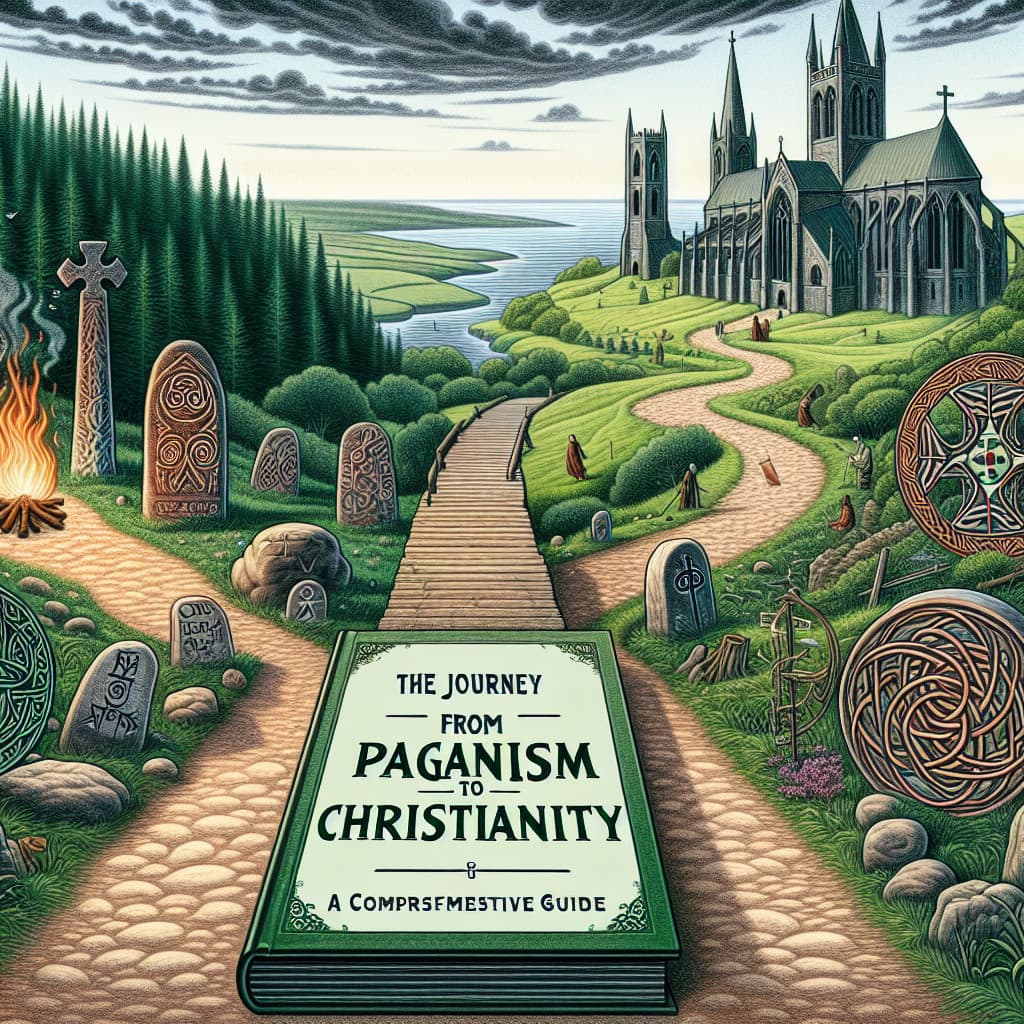The history of religious conversion is a complex and fascinating one. For centuries, people have made the decision to switch their beliefs, often in dramatic and profound ways. This article will explore the journey from pagan to Christian beliefs and how this shift has affected different cultures over time. It will look at how this process has been driven by politics, education, and social pressures and will provide insight into the motivations of those who made the transition. It will also examine the impact of this shift on the practices of different religions and how it has shaped the world we live in today.
The journey from pagan to Christian is a long and complex one. From its beginnings in the early centuries of the first millennium, Christianity has gone through many changes, both in its theology and in its practice. This article will explore the various stages of the transition from paganism to Christianity and the major events that have shaped the religion as we know it today.
Early Christianity
Early Christianity is believed to have first developed as a sect of Judaism in the 1st century AD. Its followers, known as the earliest Christians, were devoted to the teachings of Jesus of Nazareth, who they saw as the Messiah. Although the early followers of Jesus did not initially consider themselves to be a distinct religion, they eventually developed a set of doctrines that would distinguish them from other Jewish sects.
Over the next few centuries, the teachings of Jesus spread throughout the Roman Empire and eventually became the dominant religion in the region. This was largely due to the efforts of St. Paul, who traveled throughout the region preaching the gospel of Jesus and converting many to the new faith.
The Rise of Christianity
By the 4th century AD, Christianity had become the official religion of the Roman Empire. This transition was largely due to the efforts of Emperor Constantine, who declared Christianity to be the official religion of the Empire in the Edict of Milan in 313 AD.
With its newfound status, Christianity began to spread throughout Europe and eventually became the dominant religion in the region. This was largely due to the efforts of missionaries, who traveled throughout Europe and beyond to spread the gospel of Jesus.
The Spread of Christianity
The spread of Christianity throughout Europe was not without its opposition. Throughout the Middle Ages, Christianity faced numerous challenges from the pagan religions of Europe, particularly in the form of the Viking invasions.
However, Christianity eventually gained the upper hand and by the end of the Middle Ages, it had become the dominant religion in Europe. This was largely due to the efforts of the Church, which spread the gospel throughout Europe and established religious institutions such as monasteries and churches.
The Reformation
The Reformation was a period of religious upheaval that began in the 16th century and lasted until the 18th century. During this period, many Christian denominations began to break away from the Catholic Church, which had become increasingly authoritarian and corrupt.
The Reformation had a huge impact on Christianity, as it gave rise to numerous new denominations, such as Lutheranism, Calvinism, and Anglicanism. These denominations had different interpretations of the Bible and different forms of worship, which led to the emergence of Protestantism as a distinct branch of Christianity.
The Modern Era
The modern era has seen Christianity continue to spread throughout the world. In the 19th and 20th centuries, Christianity experienced a period of revival, as new denominations and movements emerged, such as Pentecostalism and Evangelicalism.
Today, Christianity is the world’s largest religion, with more than 2 billion adherents. While there are still many differences between the various denominations and movements, the journey from pagan to Christian has been a long and complex one, and Christianity continues to be a major force in the world today.
In conclusion, the transition from pagan to Christian beliefs has been a long and complex process that has had a profound impact on the world. Although the pagan belief system has largely been replaced by Christianity, the influence of the former can still be seen in many aspects of modern life. It is important to remember that this transition was not an easy one and that it has been a significant part of human history. Ultimately, the journey from pagan to Christian beliefs has shaped the way we view the world today, and will continue to do so in the future.





